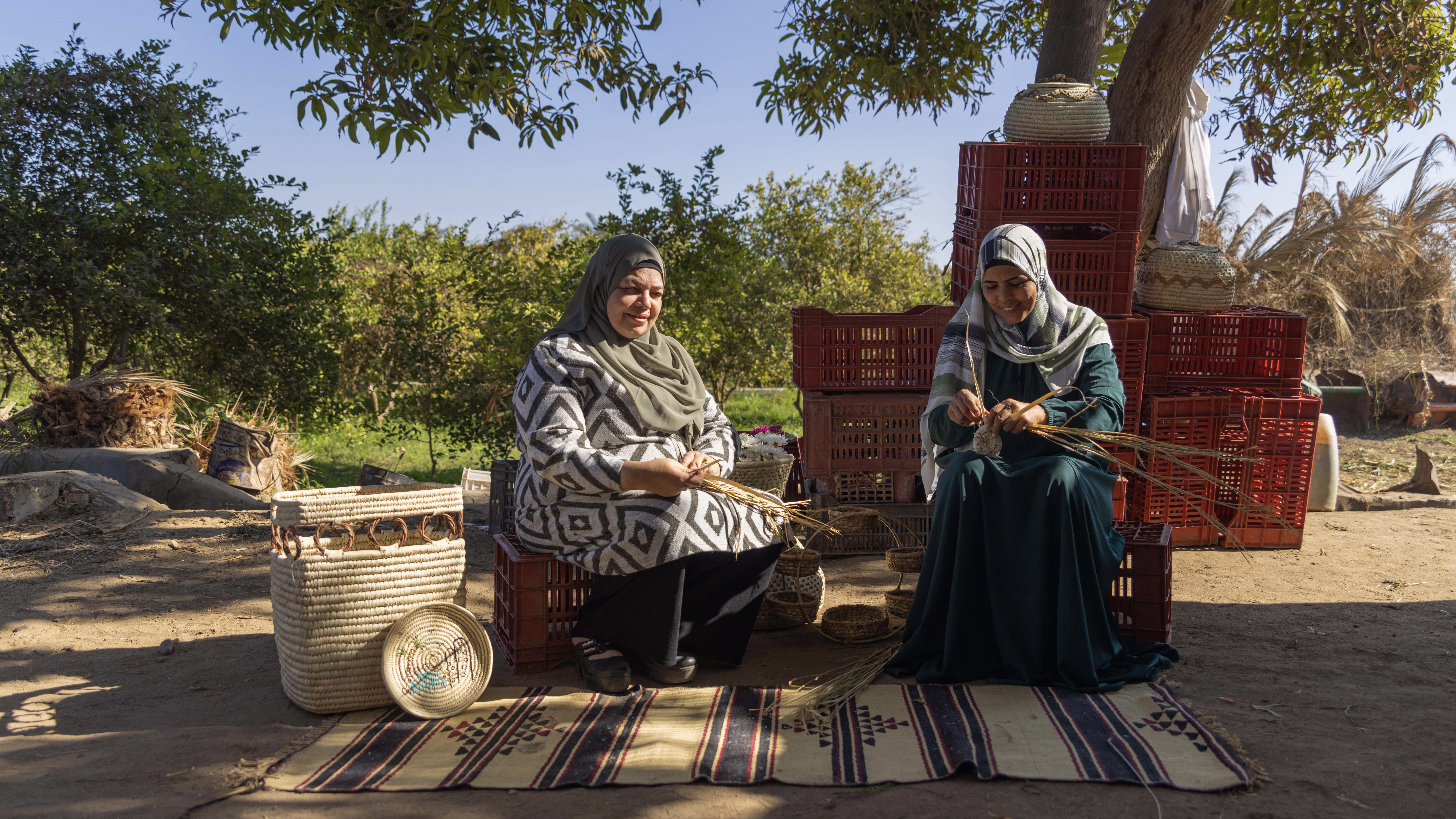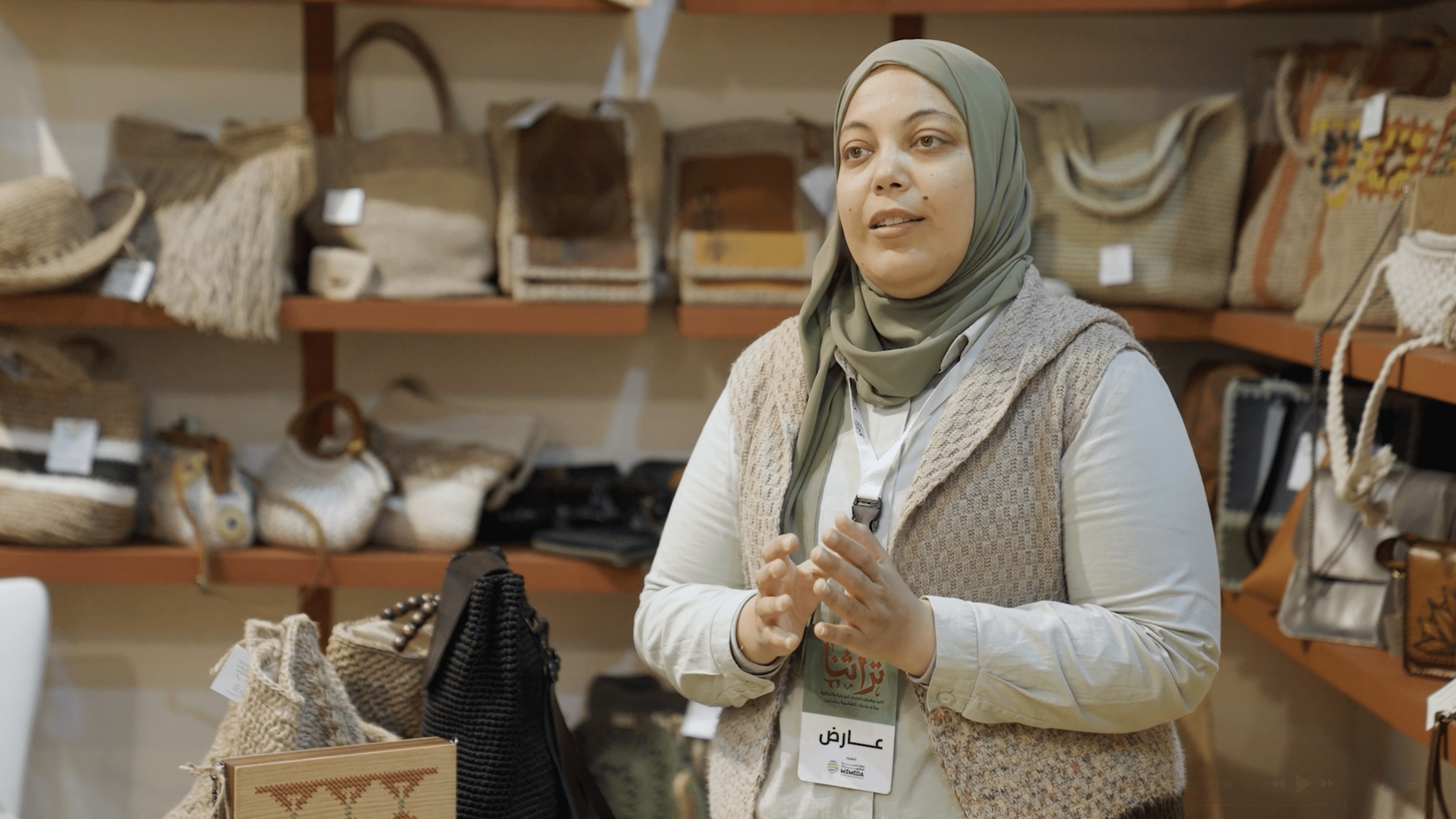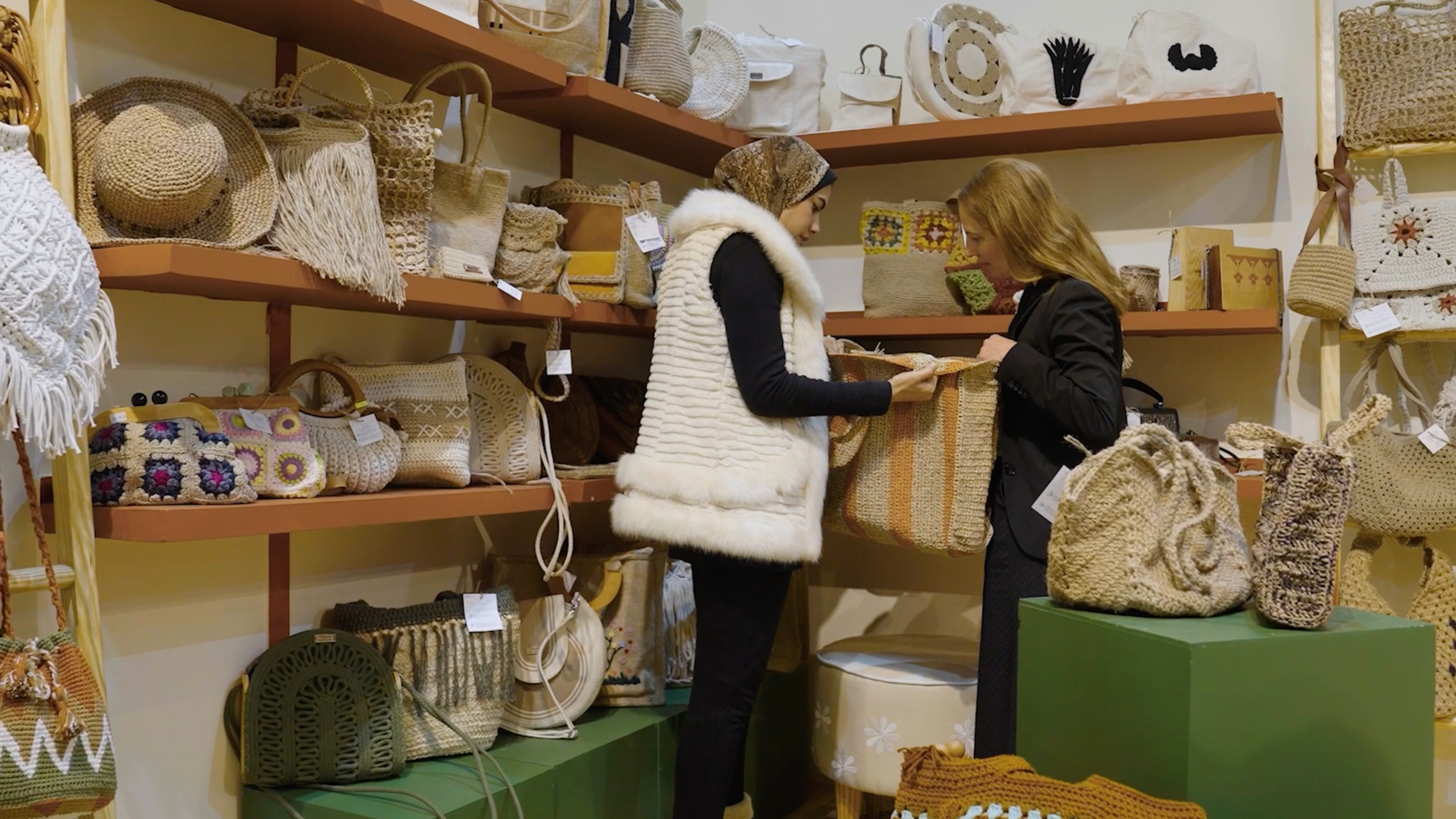

The Rabeha Joint Programme boosts sales and market access for Egyptian women-led handicraft enterprises
20 February 2025

Egypt, 20 February 2025 - Dedicated to the economic empowerment of women entrepreneurs and self-employed women, the UN Joint Programme “Rabeha” strengthens skills to help women start and grow their businesses. By enhancing product design, quality, and sustainability, Rabeha enables women to expand their market reach at national, regional, and global levels.
UN Women and UNIDO are jointly implementing the "Rabeha" programme, in partnership with the Government of Egypt and with funding from Global Affairs Canada, to foster self-employment opportunities for female entrepreneurs across seven Egyptian governorates. Central to these efforts is participation in the annual Turathna Exhibition for Handicraft and Heritage, organized by the Micro, Small and Medium Enterprise Development Agency (MSMEDA). In 2024, Rabeha supported around 80 women entrepreneurs to exhibit their handicraft products at the exhibition to access new markets. Additionally, three technical consultants were deployed to provide on-the-job consultations and technical assistance to all exhibitors at Turathna, enhancing their skills and optimizing their market presence for increased sales and visibility.
To support women entrepreneurs in overcoming barriers and seizing new opportunities, the program provides targeted training and mentorship tailored to their needs.
“Women faced three main challenges,” explained Virpi Stucki, Chief of the Fair Production, Sustainability Standards and Trade Division at UNIDO. “One was related to the supply chain itself, another to sustainability, and the third to product design. Through targeted training, we equipped women with the skills to access local and international markets, and the results have been very promising.”
Marwa Alameldeen, UN Women Country Representative a.i, added, “By empowering women with entrepreneurship services and mentorship, we are not only unlocking their potential but also opening doors to new markets. When women thrive, communities and economies grow stronger."
Building on these efforts, the programme equips women entrepreneurs with practical skills and strategies to refine their products and strengthen their presence in competitive markets.
To prepare exhibitors for Turathna, UNIDO and UN Women conducted intensive product design and development workshops for women entrepreneurs in Alexandria, Beheira, Beni Suef, Fayoum, and Minya governorates. These workshops enabled participants to create 700 newly designed, high-quality products for the 10-day exhibition. Women exhibitors refined their products, unified colour schemes, and improved booth displays to attract buyers. By blending modern design with heritage elements, they utilized local, eco-friendly materials and incorporated circular economy principles into production. Additionally, they learned to set competitive prices, track sales, and enhance branding and marketing strategies.
Mona Hassan, a crocheter from Beni Suef, described her experience: “The training began with an evaluation of our products. They highlighted areas for improvement—design, colours, finishing—and guided us step by step. Even small details like accessories for export products were covered. Pricing was especially crucial. Today, at Turathna, we’ve been given a great opportunity to showcase our work.”
The impact of Rabeha was evident in tangible business growth. “We secured an export order to Kuwait during Turathna,” said Safinaz Saleh, a wicker maker from Fayoum. “We thank UNIDO for their efforts, training, and guidance.” Sabah Mostafa Ismail, a pottery maker from Fayoum, added, “The booth was so attractive that it boosted sales during and after the event.” Mona Hassan also noted, “I generated very good sales and gained new clients, especially expats in Egypt. I even received interest from B2B clients like Kaf Fatma and the Grand Egyptian Museum, thanks to Rabeha!”


Following the exhibition, the Rabeha-supported female exhibitors reported an increase in sales, accounting for an impressive total sales volume of EGP 758,175 (approximately $15,000 USD). Additionally, the exhibitors collectively support more than 550 other women through local handicraft clusters, strengthening value chains across the sector.
“Rabeha is one of the most important programmes for the economic and social empowerment of women,” said Dr. Raafat Abbas, Deputy Executive Director of MSMEDA. “Empowerment is about increasing women’s capabilities. At Rabeha’s booth there are more than 80 exhibitors who have products that meet international standards, reaching a level where they are sold outside of Egypt.”
“Inclusive economic growth is a priority for both Canada and Egypt,” said Nancy Odeh, Head of Cooperation at the Embassy of Canada to Egypt. “The Rabeha project focuses on women’s economic empowerment and inclusive growth, aligning with our broader goals in economic development.”
Rabeha (meaning “winner” in Arabic) aims to support the economic empowerment of more than 6,300 women in 7 governorates through increased access to employment and self-employment opportunities. To date, over 7,500 women have been supported by UNIDO, UN Women and partners. The programme is jointly implemented by both agencies in partnership with the National Council for Women (NCW), the Ministry of Industry (MoI) and the Medium, Small and Micro Enterprises Development Agency (MSMEDA), with the generous support of Global Affairs Canada.
For more information please contact:
Virpi Stucki
Chief
Division of Fair Production, Sustainability standards and Trade